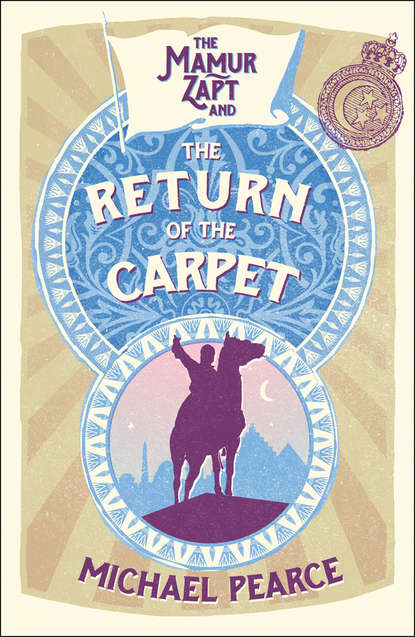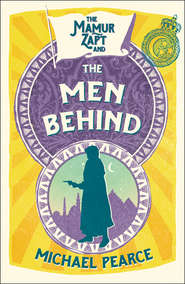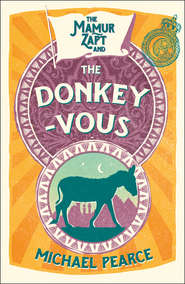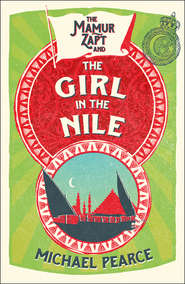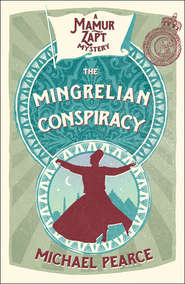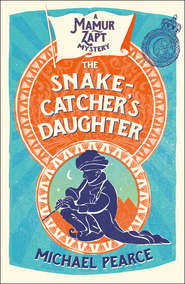По всем вопросам обращайтесь на: info@litportal.ru
(©) 2003-2024.
✖
Mamur Zapt and the Return of the Carpet
Автор
Год написания книги
2019
Настройки чтения
Размер шрифта
Высота строк
Поля
‘He might,’ said Owen. ‘Just to be difficult.’
Nikos made a dismissive gesture. He had a Cairene contempt for the powerless.
From along the corridor came the chink of cups and a strong aroma of coffee.
‘It’s not that, though,’ said Owen. ‘It’s the way it might come across in the papers. The international ones, I mean.’
Especially now, he thought, with the new Liberal Government in England feeling extremely sensitive about international opinion after the Denshawai business and trying to get out. He wondered how much Nikos knew. Enough, he suspected. Nikos wasn’t stupid.
Nor, in fact, was the Khedive. He was adept at finding pretexts to cause diplomatic trouble. There were plenty ready to help him. France for one, which had never forgiven the British for the way they had stayed on after crushing the Arabi rebellion. Turkey for another. After all, Egypt was still in theory a province of the Ottoman Empire, with a Head of State, the Khedive, who owed allegiance to the Sultan at Istanbul.
In theory. In practice, the British ran it, and Egypt’s real ruler, for over thirty years now, had been the British Agent; first Cromer and now Gorst. The Khedive appointed his Ministers and they were responsible to him through the Prime Minister and Cabinet for their management of the Departments of State. But at the top of each great Ministry Cromer had put one of his men. They did not direct, they advised; but they expected their advice to be taken, and if it was not, well, there was always the Army: the British Army, not the Egyptian.
And then, of course, there was the Mamur Zapt.
That was the reality. But it did not mean that appearances could be dispensed with. Egypt was still in principle a sovereign state, the Khedive still an independent sovereign. The British presence needed explaining.
The British story was that they were there by invitation and on a temporary basis. They would withdraw once Egypt’s finances were sorted out. Only they had been there for thirty years now.
His Majesty’s Government thought it best, in the circumstances, to emphasize that the British role in Egypt was purely an advisory one. The British Agent merely suggested, never instructed; the ‘advisers’ made ‘recommendations,’ not decisions; and the Army was kept off-stage. Appearances were important.
And so it would not do for the students to demonstrate outside the Palace. It would give all sorts of wrong impressions.
Nikos, of course, understood all this perfectly well. Indeed, like many sophisticated Cairenes, he rather enjoyed the ambiguities of the situation. Not all Egyptians, naturally, had such a developed taste for irony.
Curiously, the British themselves were not entirely at home with the position either. It was too complicated for the military and, even under Cromer’s strong hand, there was always tension between the civil administration, conscious of the diplomatic need to preserve appearances, and the army, impatient to cut through the web of subtleties, evasions and unstated limitations.
The Mamur Zapt inhabited the shadow between the two.
‘Keep McPhee informed,’ he told Nikos. ‘I’m going out later.’
He had an appointment with Mahmoud.
As Nikos left he nearly collided in the doorway with Yussuf, who spun the tray away just in time. Clicking his tongue at the departing Nikos, he slid the tray on to Owen’s desk.
‘The Bimbashi has a visitor,’ he announced. Yussuf was a great purveyor of news. ‘He told me to bring the cups.’
Like McPhee, Owen had his own service-issue mug, which Yussuf now half-filled with coffee. When they had visitors a proper set of cups was produced.
‘Oh,’ said Owen, and then, pretending interest so as not to hurt Yussuf’s feelings. ‘Who is he?’
‘From the Palace, I think,’ said Yussuf, gratified. ‘The Bimbashi looked unhappy.’
McPhee always found relations with the Khedive’s staff very difficult. On the one hand he had great respect for royalty, even foreign royalty; on the other, he knew that not all the Khedive’s requests were to be met. Some were acceptable to the British Agent, others were not, and McPhee lacked the political sense to know which was which. The adroit politicians of the Khedive’s personal staff ran rings round him, forever laying traps which he was forever falling into.
Owen was responsible through Garvin directly to the British Agent and had little to do with the Khediviate, something for which he was very grateful.
On this occasion, however, he was unable to keep out. Shortly after he had heard Yussuf’s slippers slapping away down the corridor, he heard them slap-slapping back. Yussuf appeared in the doorway.
‘The Bimbashi would like you to join him,’ he recited.
He saw that Owen had not finished his coffee.
‘I bring you a cup,’ he said.
The man from the Khedive was a Turk in his late fifties, with close-cropped hair and a grey, humourless face.
‘Guzman Bey,’ said McPhee.
He introduced Owen as the Mamur Zapt. The other barely nodded. Owen returned the greeting as indifferently as it was given.
McPhee sat stiff and uncomfortable.
‘It’s about Nuri Pasha,’ he said to Owen. ‘The Khedive is very concerned.’
‘Naturally,’ said Owen.
‘He would like to know what progress has been made.’
‘It’s very early days yet,’ said Owen, ‘but I believe the Parquet have the matter well in hand.’
‘What progress?’ said the man harshly.
‘A man is held. He has confessed.’
Guzman made a gesture of dismissal.
‘The others?’ he said.
‘The Parquet has onlyjust begun its investigations,’ Owen pointed out.
‘The Parquet!’ said the man impatiently. ‘And you? The Mamur Zapt?’
‘The case is primarily the concern of the Parquet,’ said Owen. ‘I am interested only in security aspects.’
‘Precisely. That is what interests the Khedive.’
‘I am following the case,’ said Owen.
‘No progress has been made?’
‘As I said—’ Owen began.
The man cut him short. ‘The British are responsible for security,’ he said to McPhee. ‘What sort of security is this when a statesman like Nuri Pasha is gunned down in the street?’
‘He was not gunned down,’ said Owen.
‘Thanks to Allah,’ said the man. ‘Not to you.’





